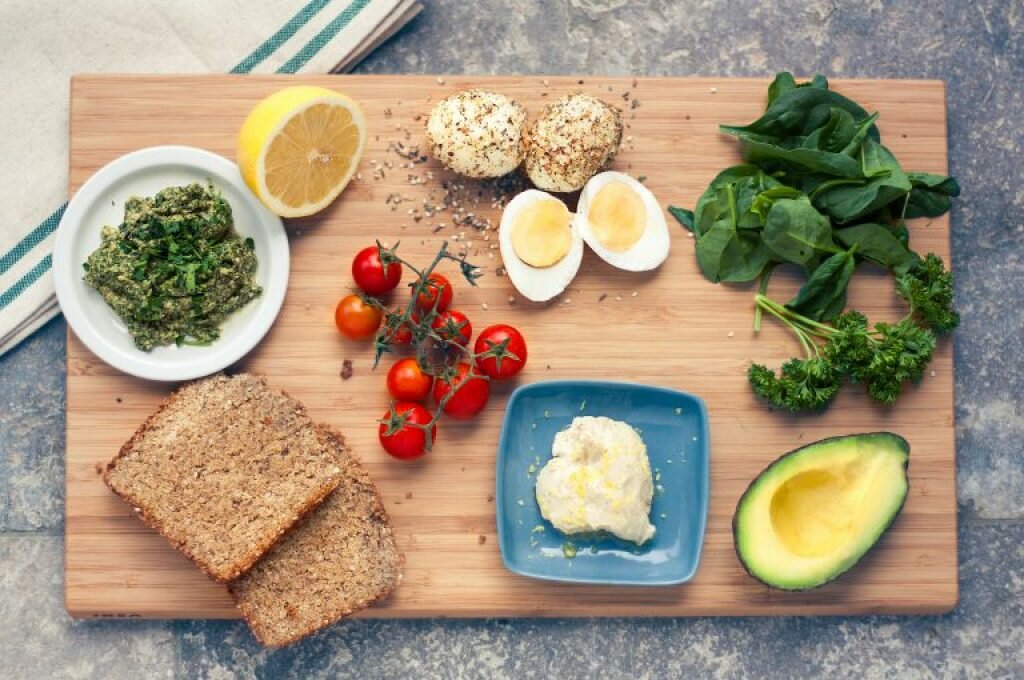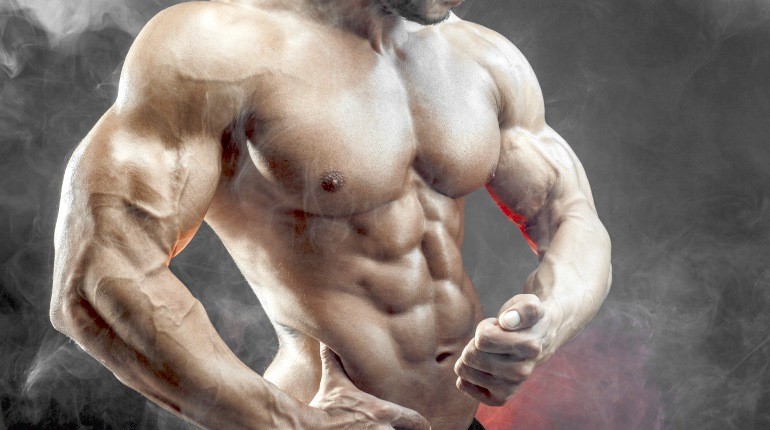Eating before or after exercise – which makes more sense?
Perhaps you have asked yourself whether you should eat before or after exercising. At least that’s a question that I’m asked quite often.
There is no general answer to the question of the correct mealtime. With this article I still want to try to give you an answer with which you can really do something. To do this, let’s take a look at the advantages and disadvantages of eating before and after training. If there were only arguments for one side, then not so many people would ultimately ask this question.
Then I want to deal with the question of whether and when it makes a difference when losing weight or building muscle whether you eat before or after exercise. Ultimately, the right decision always depends on your goals.
At the end of the article, you should be in a better position to decide for yourself whether you should eat before or after exercise.

Eating before exercise, advantages and disadvantages
The stomach growls and a hard workout is on the agenda. Should you have a quick meal now?
I have often found myself wondering whether I should eat something before training or rather wait until after my workout. The question is still easy to answer in general. Eating something before training has both advantages and disadvantages.
Benefits of eating before exercise
If you are hungry and a training session is due, the advantages are of course in the foreground at first:
- You are not hungry during training and therefore in a better mood.
- Eating gives you more energy for your training.
- You won’t get a feeding flash after training.
When my stomach growls, I quickly come up with more arguments to eat something quickly, but I think these are the crucial ones.
Disadvantages of eating before exercise
Filling your stomach before training also has some disadvantages that you should consider:
- A full stomach can prevent you from exercising at the limit (otherwise you run the risk of vomiting).
- Your digestion demands energy that you lack for your training.
- You provoke a possible motivation hole (who wants to go hunting on a full stomach?).
At the latest, if you have eaten a larger amount relatively shortly before training, you will try to avoid that.
What and when does it make sense to eat before exercise?
So there is a lot to be said for eating something before training in order to have energy and some “food buffer”. However, a full stomach interferes with your workout and your body feels the need to rest rather than work after eating. Eating immediately before training is therefore not recommended. There should be at least an hour between eating and exercising, and even then you shouldn’t eat large amounts. A small snack with protein and carbohydrates is ideal.
It is also important that the energy from what you eat anyway is 30 minutes to 2 hours before it is available to your muscles. So doing the kebab 10 minutes before your leg workout at the gym is potentially one of the worst decisions for so many reasons. It doesn’t bring you anything and only burdens you.
Eating after exercise advantages and disadvantages
Let’s look at the same situation from the other side. Your stomach growls and training is on. You haven’t gotten enough to eat in hours. However, because you dealt with the disadvantages of eating before exercising, you decided to eat something afterwards. However, in addition to the advantages, this also has some disadvantages.

Benefits of eating after exercise
Consuming good quality food is definitely a recommendation that you will get in most cases. There are some good reasons for this:
- Your regeneration after training is accelerated (keyword “anabolic window”).
- Your energy reserves can be replenished quickly.
- The hunger comes after training anyway, whether you have eaten before or not.
- Subconsciously, eating is linked to training as a reward. This will help you to overcome your inner weaker self.
With all the advantages, it is almost negligent not to eat after training, isn’t it?
Disadvantages of eating after exercise
In the described situation that you did not eat anything before training, there are definitely some disadvantages to waiting to eat until after training:
- You are hungry and therefore possibly in a bad mood during training (at least that’s how I feel).
- You have less energy during training and therefore perform less (although this mostly takes place in the head …).
- After the training you run the risk of falling into a food flash. Especially with the reward of eating after training, there is a risk that you will shovel loads of unhealthy things into yourself.
- Here, too, there is the risk of a motivation hole (overcome with hunger and without energy for training)
As you can see, there are not only advantages to eating after training if you avoid eating (for a longer period of time) before training.
What and when makes sense to eat after exercise?
Eating after exercising definitely makes sense. The advantages cannot be denied. A protein shake immediately after training and a large meal with protein, high-quality fats and long-chain carbohydrates ensure optimal supply. Then add some vegetables, so that the micronutrient supply is covered and you don’t have to worry about missing something.
However, in many cases, going without eating for hours beforehand may not be the right decision. Maybe “either or?” Was just not the right question in this case.
Does it make a difference to muscle building?
Let’s take a look at whether a certain behavior regarding eating before or after exercise makes more sense for muscle building.
Basically, it can be said here that the so-called nutrition timing, i.e. the temporal optimization of food intake, has only a very small effect on the overall result. If you want to build muscle mass , then it can make sense to exploit the advantages here. However, even if you plan your meal times to be suboptimal, but your muscle building is good and the nutrients are all right, you will still make good progress up to a certain level.
Some find it difficult to eat large amounts in the evening after training. In that case, of course, there is a lot to be said for consuming a large part of the calories before training. It just doesn’t make sense to go without it for a long time before training.
If you just want to optimize it, then eat a smaller meal with proteins and carbohydrates 2-3 hours before training, a protein shake after training and then a little later your large meal with everything what you need.
Ultimately, the muscle building diet is optimally what makes it easiest for you personally to get your calorie needs and your nutrients. In most cases, that will not be eating before or after training, but both and. 😉
Does it make a difference in losing weight?
This is a good opportunity to clear up a rumor. Because even if you want to lose weight, it doesn’t really make a difference per se whether you eat a meal before or after exercise. Ultimately, what matters here is that you eat less than you consume.
More often than I would like, I have heard the recommendation not to eat anything after training in a diet, “because the body then really goes to its reserves”. In the short term this may be logical, but in the medium and long term it really makes no difference when you eat something but how much you eat.
So that you manage to stick to your diet you should divide your meals in such a way that it is as easy for you as possible and you do not have to go hungry as much as possible. It certainly varies from person to person, but going home hungry after training and then going to bed is hell for me. In addition, it is important for your muscle maintenance in a diet it is not optimal to make it difficult for your body to regenerate after training.
I also hate to go to training hungry or full of food. This also damages my performance and mood in the diet. A small, protein-rich snack, such as a Micellar Casein Shake, is ideal here.
As I said, however, you have to try for yourself which approach suits you best. I know people who drive extremely well with a single meal a day. I would go nuts and am a fan of many small meals that I distribute throughout the day.

Conclusion – should you eat before or after exercising?
As announced at the beginning, there is no clear answer to the question here. After all, everything has its advantages and disadvantages. There are some good guidelines you can follow. I hope that this will help you to find out what the right eating behavior for you is when it comes to training.
Ultimately, it will likely come down to a combination of the two. Because the right question should have been what, when and how much do I eat before and what, when and how much do I eat after exercise. But it’s best to turn off perfectionism and don’t worry too much about it, as long as you consume the right amounts throughout the day. Because somehow after the sport is always before the sport and vice versa. 😉
My personal strategy is to eat something for the last time 2-3 hours before training and then really hit it after my training. If I feel very hungry relatively shortly before my workout, I sometimes have a little something like a protein bar. However, this must not be anything that potentially hits the stomach and interferes with training.

